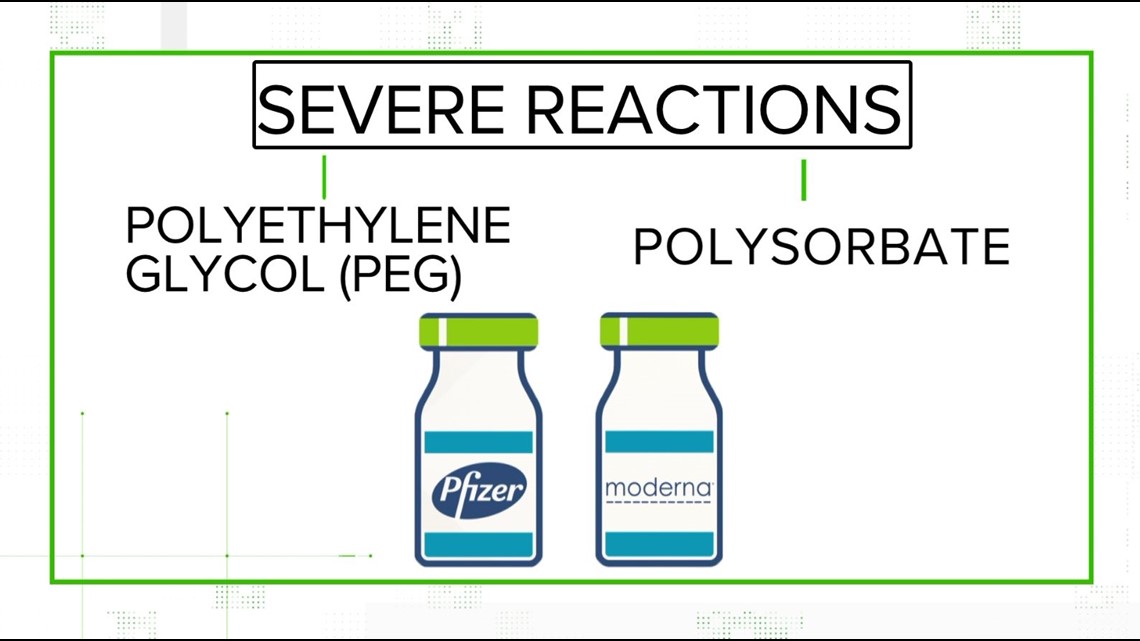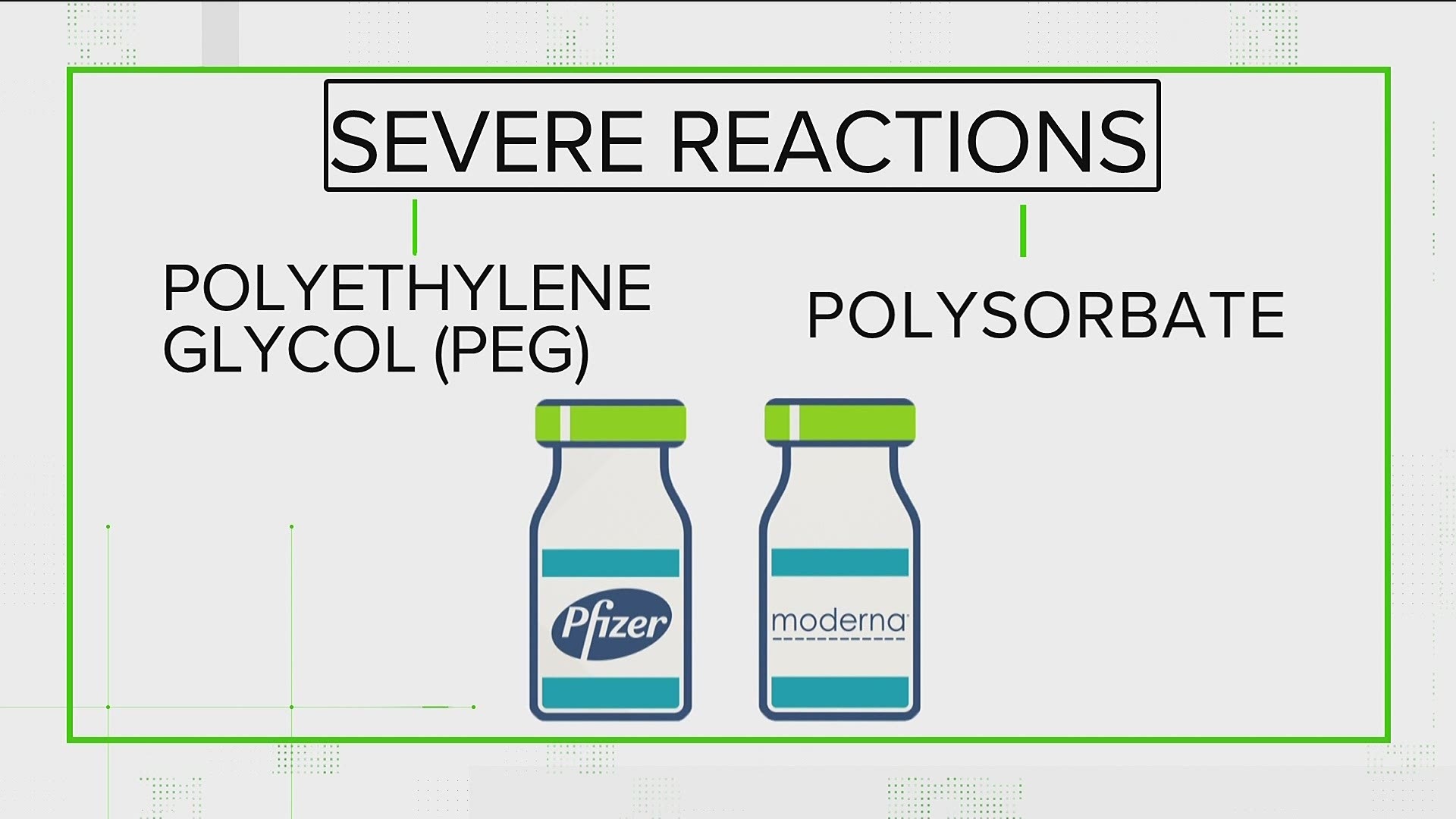ATLANTA — Rashes, fatigue, and fever can all be side effects of the COVID-19 vaccine. That's why you have to wait 15 minutes after getting it.
In the vaccine conversations on our 11Alive Facebook page, a lot of people are discussing the side effects and possible negative reactions some are reporting.
The question that keeps popping up involves people with a history of allergies.
Our VERIFY team took that question to the experts to get more information.
THE QUESTION
If you have a history of allergies, should you be receiving the COVID-19 vaccine?
THE ANSWER
Although it's rare, health experts say you should NOT get the Pfizer or Moderna vaccine if you have severe allergies to the chemicals - polyethylene glycol (PEG) or polysorbate.
If you have seasonal allergies or allergies to peanuts or other food items, you are OK to get the vaccine. You should speak to your doctor about your specific conditions, though.
WHAT WE KNOW
"This is probably the number one question I get from patients, friends, family members," said Dr. Linda Nabha, the infectious disease specialist at the University of Pittsburgh Medical Center.
Some allergic reactions have been reported by people who got the COVID-19 vaccines, but the majority are considered mild or moderate cases that result in a rash and fever.
But severe reactions, also known as anaphylaxis, may require hospitalization or use of an epinephrine pen.
Dr. Nabha says the concern is for people who have those severe reactions to PEG or polysorbate, two chemicals found in both the Pfizer and Moderna vaccines.


"Not many people know they're allergic to it. If you've had an allergic reaction to it, those are the people who should not be getting the mRNA vaccines," Dr. Nabha said.
She said it's likely you've already been exposed to these chemicals which can be found in food, makeup, and some shampoos.
"But I want to assure you that having an allergic reaction to other things - you may not get that severe anaphylactic reaction with the mRNA vaccines," Dr. Nabha said.
The Center for Disease Control and Prevention (CDC) recommends that if you do go through anaphylaxis after your first Pfizer or Moderna dose, you should not get a second shot of that vaccine.
However, if you experience normal side effects like a rash or fever, you're in the clear.
"These anaphylactic reactions typically occur as soon as you're exposed to that particular substance," Dr. Nabha said.
So, we can VERIFY that, although it's rare, you should NOT get the Pfizer or Moderna COVID-19 vaccines if you have severe allergies to the chemicals polyethylene glycol or polysorbate.
If the Johnson & Johnson vaccine, which has one of those chemicals in it, resumes, Dr. Nabha recommends speaking with your primary care doctor for their recommendation.

